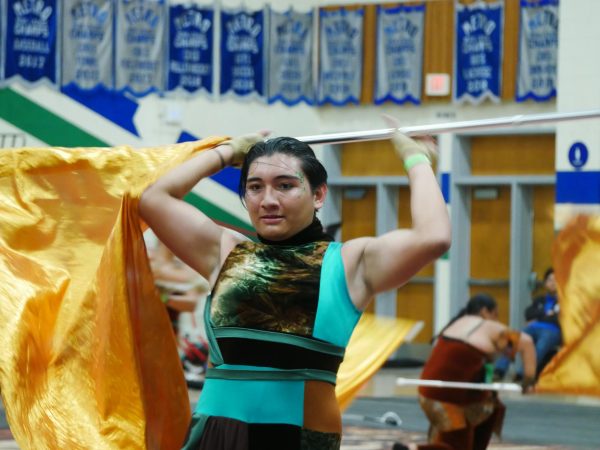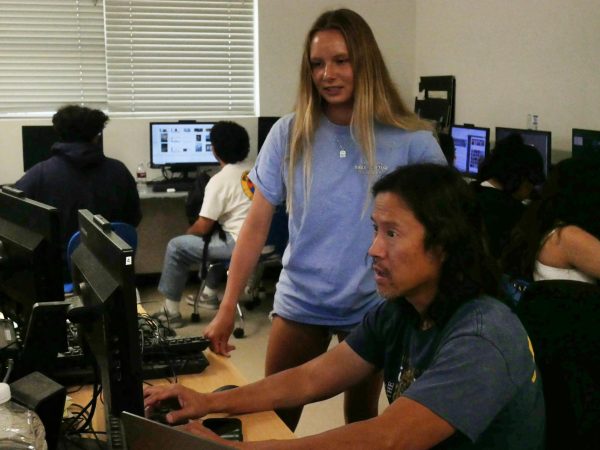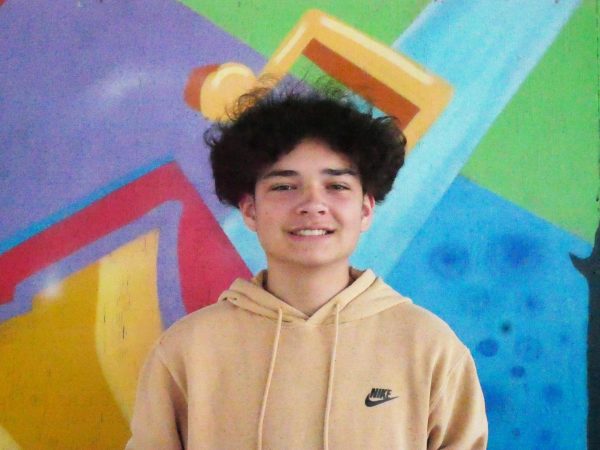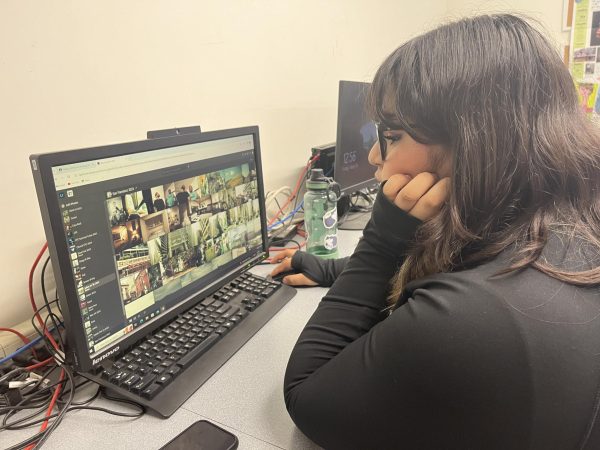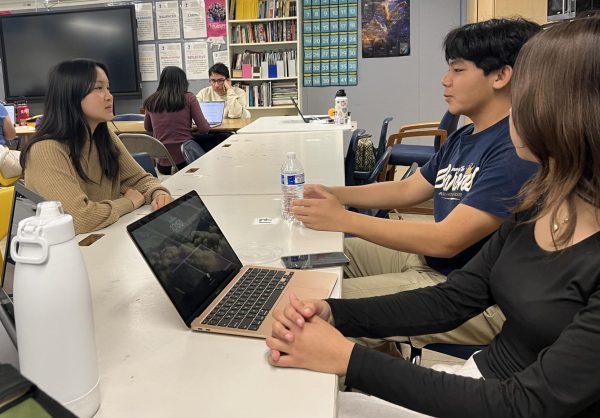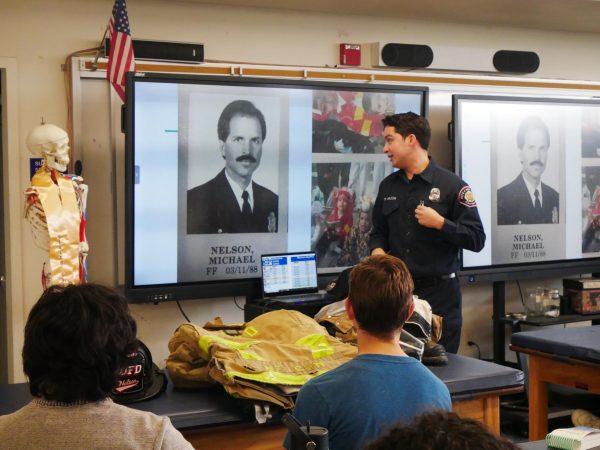Continuing religious practices during quarantine
For millennia, religion has been the gateway for people to connect spiritually and culturally, to bond as a cohesive religious community. With the COVID-19 outbreak causing public spaces to close and people to stay locked in their households, some religious communities have had a difficult time reconnecting with each other. This has caused religious people to rethink how they would continue their traditions, including many Bonita Vista High (BVH) students. These devout students try to reunite with fellow classmates, friends and family to replicate that religious foundation with their respective communities during the pandemic.
“My parents run a church, so it was very difficult because when everything was shut down, we also had to close our doors,” junior Giovanna Sanchez said.
Sanchez is president of the Influencing My Peers As Christan Teens (IMPACT) Club. The club works to build a stronger bond and community between Christian students at BVH. With her family running a Christian church and her responsibility to lead IMPACT club, they needed a new way to interact with their Christian community during the pandemic.
“We had our church do Zoom meetings […] and luckily enough, my sister is actually a worship leader, so we would hold worship services at the house and everyone would be on Zoom,” Sanchez said. “We did that for the first three or four months.”
Sanchez also decided to use Zoom meetings for IMPACT Club as well. Though the club still meets every Tuesday at lunch, they now hold meetings through Zoom. “It’s been a weird, kind of awkward transition, but we’ve been able to handle it well,” Sanchez said.
BVH senior Daniela Cassell, has shared a similar experience practicing her faith with her family and club amidst the pandemic. Being co-president of the Jewish Haverim Club, she works to build a community that celebrates all sides of Jewish culture and tradition at BVH, such as studying Judaism and celebrating Jewish holidays. Cassell described that being with family, friends and loved ones is a major aspect of Jewish tradition, so it was especially important for her family and friends to stay connected during the pandemic.
“We will do prayers over Zoom and we will carry out our dinners over Zoom as well to have that connection,” Cassell said. “That’s one thing that was really difficult because you couldn’t be with the people you love.”
Cassell was especially disappointed in having to resort to Zoom as opposed to attending Jewish celebrations at school. She explained that before the pandemic, Haverim club would hold monthly meetings with Jewish International Baccalaureate Environmental Systems and Societies and Accelerated Biology teacher at BVH, Jennifer Ekstein. They’ve only been able to hold Zoom meetings “once or twice throughout quarantine,” unable to replicate the meeting experience they had before.
“The Rabbi [used to] come and he would talk to us about the religion and then we would talk about Israel, and he would bring us food,” Cassell said. “We were with people we love, people [we] care about.”
Have you actively practiced your religion during quarantine? Total Voters: 30
![]() Loading ...
Loading ...
BVH junior Ibrahim Deiranieh has also made use of technology to continue practicing the Muslim faith with his family. Before the pandemic, Deiranieh, along with his family and community, would go to the mosque every Friday where religious gatherings would be held.
“For our prayers there would usually be a gathering at our mosques, but they’ve all gone virtual,” Deiranieh said. “Our priest, which is called an Imam, would record a lecture and a prayer that we could follow along at home.”
Although Deiranieh was able to use technology for Muslim religious ceremonies, he explains how celebrating the holy month of Ramadan was especially different from how they celebrated it traditionally. Ramadan is celebrated by Muslims worldwide, where families fast and pray throughout the holy month. As Ramadan began around the time when quarantine started, Deiranieh said he was only able to celebrate with his immediate family instead of celebrating with all of his friends and family.
Despite being unable to practice their religion in traditional ways, like attending church, the synagogue or the mosque in person, Sanchez, Cassell and Deiranieh all found it important to continue religious traditions during quarantine. Sanchez, for instance, suggests that continuing with online sessions for IMPACT club gives members an opportunity to bond with other fellow Christians. Sanchez explains how it allows them to foster communication skills and not be intimidated when speaking to another person.
“One of our club leader’s uncles unfortunately passed away from COVID-19 and she wasn’t feeling very well,” Sanchez said. “[Luckily], she was able to open up to us as a community and be vulnerable without fearing judgment.”
Like Sanchez’s response, Deiranieh also found it especially essential to continue religious traditions during the pandemic. Deiranieh shared that religion has given him comfort and hope.
“We don’t know what’s going to happen, who might be affected or why it’s happening,” Deiranieh said. “I feel like religion has given us a chance to reflect. We definitely need it now more than ever.”
Similarly, Cassell has found it very helpful to continue Jewish traditions with her club and her community, as it’s given her and others a chance to keep interacting with people that care about each other and that “have each other’s backs” during these challenging times.
“You get to know that everyone you relate to is in the same boat. If there’s something going on with you, they’re going through it too. I think it’s nice that you can relate to other people when you’re not alone,” Cassell said.
With the closing of public areas in March, religious people were especially unprepared for the pandemic, as many important religious holidays happened during that time. For instance, as Deiranieh mentioned, the holy month of Ramadan began on April 23, the Muslim holiday of Eid al-Fitr happened in May and Eid al-Adha came after in July. As for Cassell, instead of celebrating the Jewish holiday of Passover with her best friends and family, she was left upset, as it was especially difficult to be with loved ones during the early stages of quarantine.
Although COVID-19 is still prevalent, religious practices and traditions are slowly returning to their traditional roots as religious people have had time to adapt and create safety precautions. Sanchez described that her family’s Christian church has been able to start in-person religious services recently. The church had to take necessary precautions to keep attendees safe, including “reducing their normal capacity to one-third” and implementing reservations to prevent overcrowding.
Mosques have also taken similar measures to ensure safety of their attendees. According to Deiranieh, his local mosque has also had to take limited people, requiring them to make a reservation, wear masks, stay sanitized and remain socially distant.
Cassell’s local synagogue has not only started in-person services, but her club has also begun in-person activities as well. On Sept. 14, Haverim club members met at Discovery Park to celebrate Rosh Hashanah, the Jewish New Year, which happened on Friday of that week. Although they only got to meet up with masks and socially distanced, they still had the opportunity to celebrate as a Jewish community.
“We’re showing everyone that we’re not letting COVID stop us. We’re still going to be together because that’s what our culture and religion is all about,” Cassell said. “We’re working, not around the pandemic, but with it.”
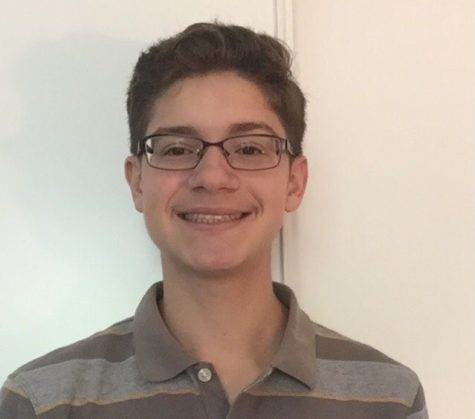
I am a junior at Bonita Vista High school, and this is my first year as part of The Crusader. I hope to develop many helpful skills from Newspaper...
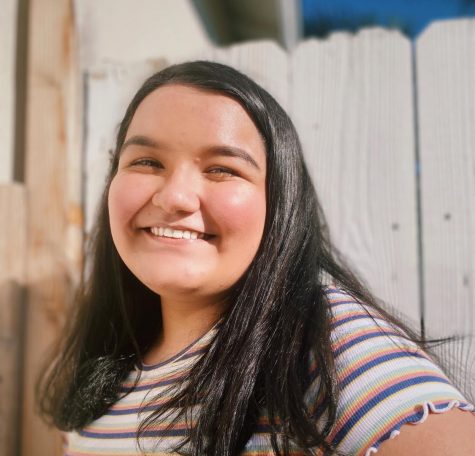
My name is Kara Barragan and this is my fourth and final year with the Crusader. As a freshman I was on the lookout for an outlet where I could put out...



